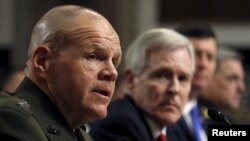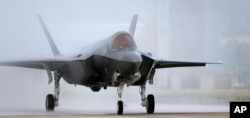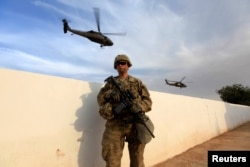U.S. Marine Corps Commandant General Robert Neller, like much of the Pentagon top brass, is pretty happy about President-elect Donald Trump's campaign pledge to rebuild America's military after years of congressionally imposed spending caps.
But ask Neller about Trump's main proposal to increase the number of Marine infantry battalions from 24 today to 36, and he pauses.
"That's a lot," Neller told Reuters in an interview.
Neller, like many of his Pentagon colleagues, thinks America's military needs to shift quickly to prepare for more sophisticated adversaries than the insurgents the United States has been fighting in Iraq, Syria and Afghanistan.
That will require more troops, including in the infantry.
But Neller wants more cyber, intelligence and avionics specialists, as well as additional jets, amphibious ships and other weaponry that can better prepare the Marine Corps for a potential conflict with another country.
Islamic extremists are certainly lethal, Neller says, but are not nearly as capable as even the Russia-backed separatists that Ukraine is fighting, whose arsenal includes drones, radar and accurate artillery, for example.
"If you think the next war's going to be like this [counter-insurgency battle], then OK fine. I don't think it is. I don't," Neller said."It's going to be much more difficult. It's going to be much more complicated. It's going to be much more sophisticated."
At the Reagan National Defense Forum in California, Neller said his wish-list for the Marine Corps included speeding up purchases of higher-end items, including Lockheed Martin's stealth supersonic F-35 aircraft and the Joint Light Tactical Vehicle (JLTV) made by Oshkosh.
Trump's campaign proposal for the Marine Corps was based on a Heritage Foundation study that determined that 36 active-duty battalions would be necessary to wage two wars at once.
"Having this ability deters other competitors from trying to take advantage of the U.S. being 'tied down' in a conflict in one region," wrote the Heritage Foundation's Dakota Wood.
To that end, Trump has also pledged to build an active Army of around 540,000, up from about 475,000 today and build a Navy approaching 350 surface ships and submarines, up from just over 290 ships today. He pledged to give the Air Force at least 1,200 fighter aircraft, about 100 more than today.
Air Force Secretary Deborah Lee James, speaking at the same defense forum, welcomed the possibility of more aircraft and, like Neller, expressed interest in accelerating the acquisition of F-35 aircraft.
"Additional aircraft would certainly allow us to be able to do different jobs across the word simultaneously," James said, also noting the need for a new bomber.
But James also spoke of other high-end capabilities, including in space, and warned about the need for Congress to fund nuclear modernization, which some estimates say will cost about $1 trillion over the next three decades.
Chief of Naval Operations Admiral John Richardson said the U.S. arms industry is ready and capable of boosting production of new ships to meet Trump's campaign pledge.
Shifting the current target of 308 ships upwards would be "remarkably easy," as long as there is funding to pay the bill.
"If it's resourced, it's a matter of working closely with the industrial base, and they definitely are ready to do that," he told Reuters, adding the only limiting factor would be hiring and training workers to build the new ships.
Republicans, who will control both houses of Congress and the White House after Trump is sworn in on Jan. 20, see good prospects for raising military spending levels and scrapping a 2010 law that imposed mandatory cost caps on defense spending.
Still, it's unclear how Trump will fund all of his planned programs, which beyond the military spending spree includes paying for a major U.S. domestic infrastructure program.
For Neller and other Pentagon chiefs, investing to prepare for more advanced threats is a priority, regardless of whether Trump makes good on his pledges.
"The only thing we're not going to do is stay the same. We're not. Can't. I'd be derelict in my duties," Neller said.







